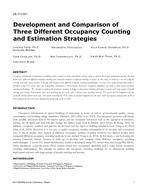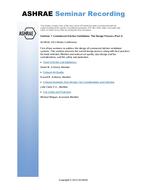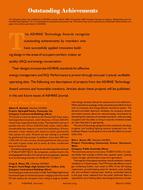Click here to purchase
Statistical models have often been used for building energy modeling and are fundamental to the inverse modeling techniques suggested by ASHRAE Guideline 14. These models usually use weather parameters as the driving variable, while literature discussing how occupancy is considered in the building energy use modeling has been sparse. This work proposes a method where building domestic water data were grouped into different clusters to generate a “calendar” of occupancy levels. Data at different occupancy levels were then fit with a model separately. The whole-year daily chilled water use of a classroom building was used to test this method. The proposed method resulted in significantly improved model performance. Using the four-parameter change-point model as the core form, the models’ CV-RMSE with data not separated, separated to weekday and weekends, separated to all seven days of week, and separated by domestic water clusters were 27.8%, 16.2%, 15.4% and 13.3%, respectively, showing that the proposed method outperformed all other data separation strategies considered. This method is valuable because it reduces time and cost of establishing energy consumption models for buildings with complex occupancy schedules.
Citation: 2021 Virtual Conference Papers
Product Details
- Published:
- 2021
- Number of Pages:
- 7
- Units of Measure:
- Dual
- File Size:
- 1 file , 790 KB
- Product Code(s):
- D-VC-21-C007


